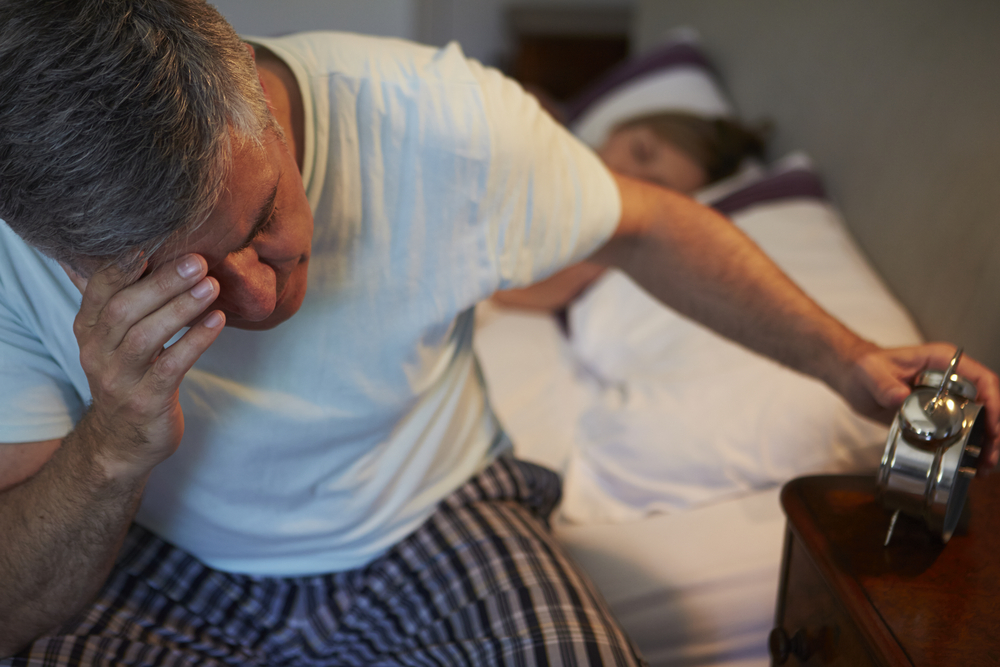What Contributes to Insomnia in Men?
Insomnia is the most common sleep disorder today and can afflict anyone; it recognizes no boundaries. While physical factors like injury, illness, and medications can contribute to its development, insomnia is most frequently the result of anxiety and depression.
And although insomnia can happen to anyone, there are differences between how and why it occurs in men versus women. In this article, we will look at some of the unique factors contributing to insomnia in men.
The Circadian Rhythm
Regardless of gender, adults require a minimum of seven hours of sleep each night. During a typical night of rest, our sleep progresses through several sleep cycles, which can last from 90 to 120 minutes, and how an individual proceeds through these cycles indicates their sleep architecture.
Research shows that sometime between 30 and 40 years of age, variations in this architecture between the sexes start to become evident. Additionally, studies indicate men in their 30s spend less time in REM, deep sleep, and more in the lighter sleep stages.
Our circadian rhythm manages our sleep/wake cycle. While the difference in circadian rhythm between men and women is reasonably slight, it does impact the quality and quantity of their sleep.
A consistent sleep routine indicates a healthy circadian rhythm which helps us to feel awake during the daytime and sleepy at night. If your sleep schedule is out of sync with your circadian rhythm, problems like sleep disruptions and daytime drowsiness will occur.
Men often work in industries with round-the-clock schedules, and shift work is a common issue that challenges the synchronization of their sleep and circadian rhythm.
Interestingly, men and women experience slightly different circadian rhythms. Although our body’s 24-hour clock controls our circadian rhythm, most are not 24 hours. Typically, women have a slightly shorter circadian rhythm than men creating a tendency for women to go to bed and wake up earlier.
The Male Difference
While women are somewhat more susceptible to developing insomnia, we should point out several issues specific to men. For example, men are more likely to consume excess alcohol than women and experience higher rates of chronic lung and cardiovascular issues.
As men age, decreases in hormone production like HGH and testosterone can impact the quality and quantity of their sleep. And although these hormone levels can change due to poor sleep, they can also promote more frequent wakening and decrease sleep quality.
The decrease in available testosterone appears to worsen their sleep and can lead to obstructive sleep apnea (OSA), a breathing disorder that interrupts sleep and is a significant health concern. Approximately 15% to 30% of men endure this condition versus 10% to 15% of females.
Various sleep disorders like rest leg syndrome, sleep apnea, and insomnia impact the sexes at disparate rates.
Men, famous for not asking directions, are likewise often reluctant to seek treatment for health concerns like insomnia. Also, according to UCLA Health, men are more prone to developing Delayed Sleep Phase Syndrome (DS PS). DSPS is a disruption of your internal clock that, even when exhausted, prevents you from sleeping.
Final Thoughts
Anxiety, a racing mind, illness, injury, and traumatic events are all drivers of insomnia and can happen to any individual regardless of gender, race, status, or other personal attributes. But, there are differences in how insomnia occurs and affects men and women.
As we age, our body goes through numerous changes, including a decrease in hormone production, and since hormones play a significant role in how our body functions and the quality of sleep, these age-related changes often negatively impact our sleep.
Sleep Science Academy is here to help you navigate the challenges of insomnia. Our proven multi-discipline empowering program of pairing clients with a certified professional sleep coach is successfully helping hundreds achieve restorative rest once again.
Insomnia isn’t a life sentence, but it takes focused effort, commitment, and the right kind of support, like that of Sleep Science Academy to meet this challenge.
Contact us today to schedule your complimentary sleep consultation with one of our certified coaches and learn how they can help you achieve your dream of a lifetime of peaceful restorative sleep. In this brief article, you can learn more about Dynamic Sleep Recalibration (DSR) and the Sleep Science Academy difference.

